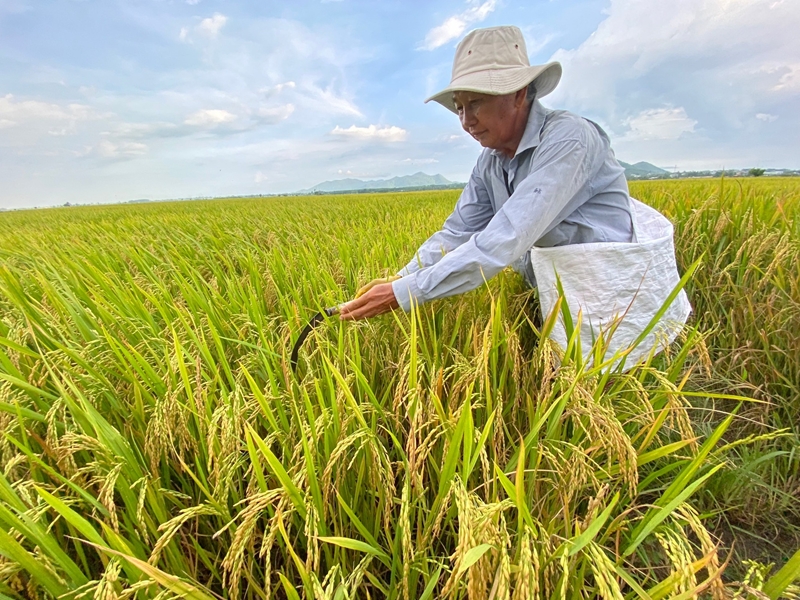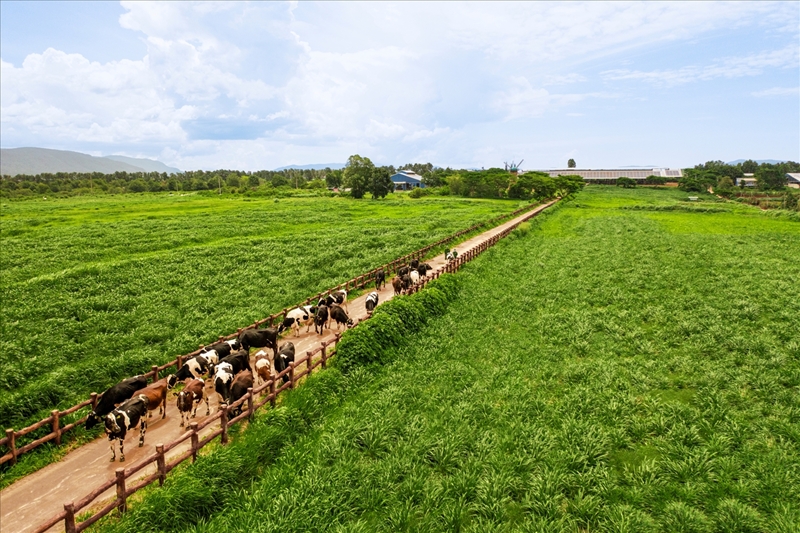 |
| Vietnam is very actively reducing emissions in agriculture. (Photo: suckhoemoitruong.com.vn) |
Green transformation and sustainable development have been paid special attention from by Party and State of Vietnam. Accordingly, the Prime Minister issued Decision No. 1658/QD-TTg on October 1, 2021 approving the National Strategy on Green Growth for the 2021-2030 period and vision to 2050; Decision No. 882/QD-TTg on July 22, 2022 approving the National Action Plan on green growth for the 2021-2030 period.
On June 26, in Dalian city (China), chaired a discussion session with Professor Klaus Schwab, founder and Chairman of the World Economic Forum (WEF) and leaders of major WEF corporations, Prime Minister Pham Minh Chinh emphasized that one of Vietnam's orientations is to promote green transformation. "Vietnam is very actively reducing emissions in agriculture, in which the 1 million hectares of high-quality, low-emission rice program in the Mekong Delta is the first project in the world in this field," said the Prime Minister affirmed.
Businesses "transform" towards green trends
In recent years, users’ concern for the environment has continuously increased. According to survey results from Nielsen Vietnam, 31% of consumers are willing to pay higher prices to buy green goods. Not only do they choose environmentally friendly products, they also increasingly pay attention to the production, distribution and consumption processes of that product. This has created positive pressure on businesses to change their production and business direction. From small companies to large corporations, they are trying to find ways to integrate sustainable factors into their operations.
Vingroup has just officially launched the campaign "Strong Vietnamese spirit - For a Green future" to call on the entire community to join hands in developing an international-class Vietnamese electric vehicle brand, contributing to strongly promoting green transition for today and tomorrow.
According to Mr. Le Tien Truong, Chairman of Vietnam Textile and Garment Group (Vinatex), the group currently applies carbon reduction solutions by measuring carbon footprints in the product life cycle, and at the same time building a green production strategy and circular production.
 |
| 100% of Vinamilk's growing area is cultivated with organic methods. (Photo: Baodantoc.vn) |
Vinamilk is also one of the bright spots in applying circular economy, green and renewable energy. At factories, the group invests in environmentally friendly and emission reduction technologies, including operational management software to increase efficiency; optimize energy for machinery and equipment; using LGV robots to replace old forklifts helps reduce up to 62% of emissions, or a heat recovery system helps recover up to 92% of excess energy and reuse to help save electricity.
At the recent seminar named "Towards a sustainable textile industry in Vietnam", five green technology pilot projects have been introduced. This is part of the "Green Technology Platform" program sponsored by the German Government, to help Vietnamese textile and garment enterprises convert to sustainable production and meet high standards of the European market.
According to the Vietnam Steel Association, the steel industry has given direction on production technology, which is to improve energy consumption and reduce greenhouse gas emissions for blast furnaces; by 2035, blast furnace factories will use new technology and research and apply CCS technology; for electric furnace technology, after improvement, it will reach the optimal emission level by 2025; By 2035, it will gradually use green energy such as renewable electricity.
In the global green trade trend, businesses proactively implementing green transformation early will save many costs, protect its competitiveness and lay a sustainable foundation for the future.
Deeply aware of the consequences of climate change, Vietnam is gradually making the green transformation. However, any transformation takes time. Green transformation needs broader awareness and to impact each individual's habits as well as the solidarity and determination of the entire community./.